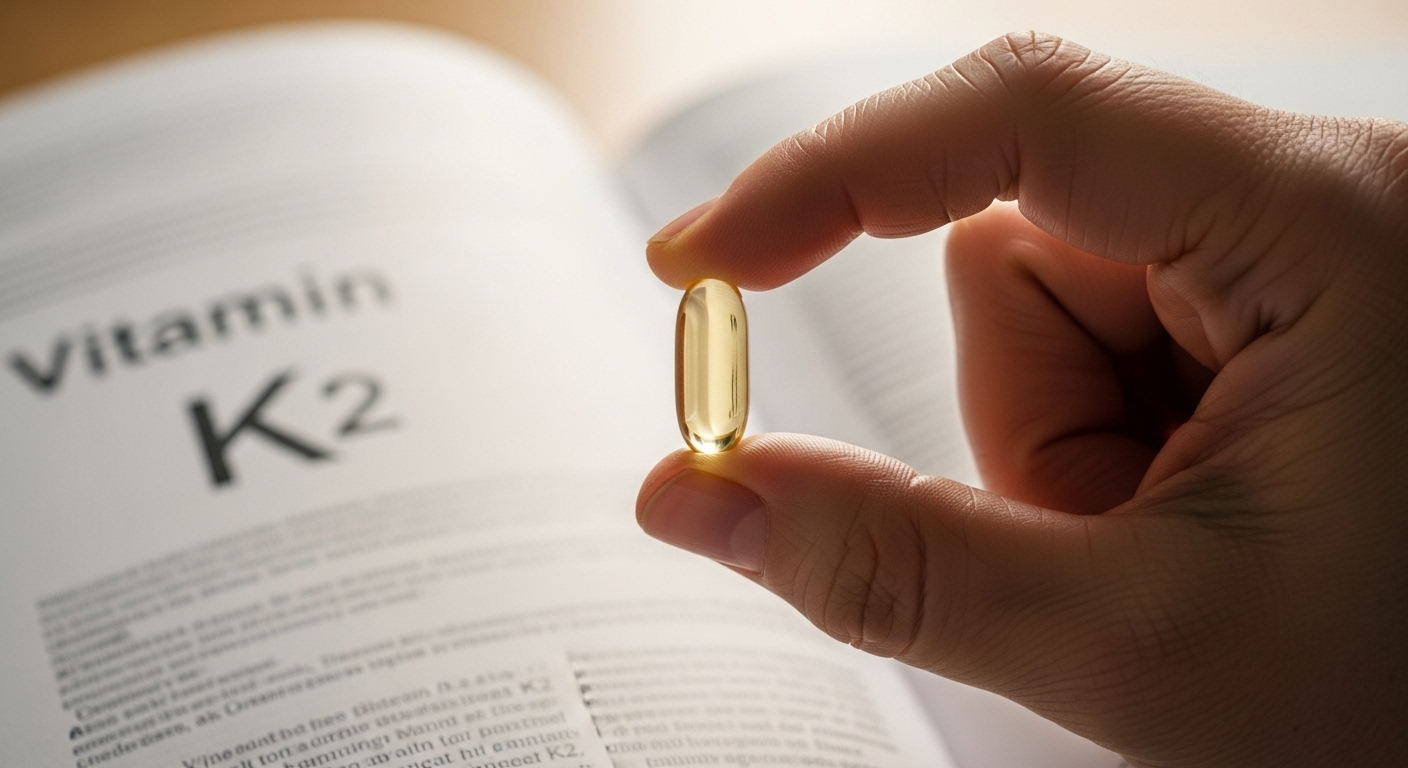Vitamin K2: The Unsung Hero of Bone and Heart Health
Vitamin K2, a lesser-known nutrient in the vitamin K family, has been quietly gaining attention in the world of nutrition and health. Often overshadowed by its more famous cousin, vitamin K1, this fat-soluble vitamin plays a crucial role in maintaining strong bones and a healthy cardiovascular system. Despite its importance, many people remain unaware of vitamin K2's unique benefits and the potential consequences of deficiency. As researchers delve deeper into its mechanisms and effects, vitamin K2 is emerging as a key player in preventive health strategies, particularly for ageing populations. This article explores the fascinating world of vitamin K2, its sources, functions, and the growing body of evidence supporting its significance in human health.

Vitamin K2 itself comprises a group of compounds known as menaquinones, ranging from MK-4 to MK-13. These variants differ in the length of their side chains, which affects their absorption, distribution, and biological activity in the body. MK-4 and MK-7 are the most extensively studied forms of vitamin K2, with MK-7 gaining particular interest due to its longer half-life and superior bioavailability.
Dietary Sources and Synthesis of Vitamin K2
Unlike vitamin K1, which is primarily found in leafy green vegetables, vitamin K2 is less common in the typical Western diet. The primary dietary sources of vitamin K2 include fermented foods, certain animal products, and some types of cheese. Natto, a traditional Japanese food made from fermented soybeans, is exceptionally rich in MK-7. Other sources include grass-fed butter, egg yolks, liver, and certain types of hard and soft cheeses.
Interestingly, the human body can also produce small amounts of vitamin K2 through the conversion of vitamin K1 by gut bacteria. However, this process is generally considered insufficient to meet optimal health requirements, especially in individuals with compromised gut health or those taking antibiotics.
The Calcium Paradox and Vitamin K2’s Role
One of the most intriguing aspects of vitamin K2 is its role in what researchers call the “calcium paradox.” This phenomenon describes the simultaneous occurrence of osteoporosis (insufficient calcium in bones) and arterial calcification (excess calcium in arteries). Vitamin K2 appears to be a key factor in resolving this paradox by directing calcium to where it’s needed most – the bones – and preventing its accumulation in soft tissues like arteries and organs.
The mechanism behind this lies in vitamin K2’s ability to activate two important proteins: osteocalcin and matrix Gla protein (MGP). Osteocalcin helps incorporate calcium into bone tissue, while MGP prevents calcium from depositing in arteries and other soft tissues. Without adequate vitamin K2, these proteins remain inactive, potentially leading to weakened bones and calcified arteries – a double threat to health.
Vitamin K2 and Cardiovascular Health
The role of vitamin K2 in cardiovascular health has been the subject of several large-scale studies. The Rotterdam Study, a prospective study involving 4,807 participants, found that a higher dietary intake of vitamin K2 was associated with a lower risk of coronary heart disease, all-cause mortality, and severe aortic calcification. Remarkably, this association was not observed with vitamin K1 intake, highlighting the unique benefits of K2.
Further research has suggested that vitamin K2 supplementation may help reduce arterial stiffness, a key risk factor for cardiovascular disease. By activating MGP, vitamin K2 helps maintain the elasticity of blood vessels, potentially lowering the risk of hypertension and other cardiovascular complications.
Bone Health and Osteoporosis Prevention
While calcium and vitamin D are often in the spotlight for bone health, vitamin K2 is emerging as an equally important player. Several studies have demonstrated that vitamin K2 supplementation can increase bone mineral density and reduce the risk of fractures, particularly in postmenopausal women.
A three-year study published in the journal Osteoporosis International found that supplementation with vitamin K2 (MK-7) significantly decreased age-related decline in bone mineral density. The study also noted improvements in bone strength and a reduction in the loss of vertebral height, suggesting that vitamin K2 could be a valuable tool in the prevention and management of osteoporosis.
Emerging Research and Potential Applications
As interest in vitamin K2 grows, researchers are exploring its potential benefits in other areas of health. Preliminary studies have suggested possible roles for vitamin K2 in dental health, cognitive function, and even cancer prevention. While these areas require further investigation, they highlight the widespread impact this vitamin may have on overall health.
One particularly intriguing area of research is the potential synergy between vitamin K2 and other nutrients, especially vitamin D3. Some studies suggest that combining these vitamins may enhance their individual benefits, particularly in bone and cardiovascular health. This has led to increased interest in developing multivitamin formulations that optimise these nutrient interactions.
Challenges in Vitamin K2 Research and Supplementation
Despite the promising research, several challenges remain in the field of vitamin K2 study and supplementation. One significant issue is the lack of standardised testing methods for vitamin K2 status in the body. Unlike other vitamins, there is no widely accepted biomarker for vitamin K2 deficiency, making it difficult to assess individual needs accurately.
Another challenge lies in determining optimal dosages for different health outcomes. While some studies have shown benefits with doses as low as 45 micrograms per day, others have used much higher amounts. The varying bioavailability of different K2 forms (MK-4 vs MK-7, for example) further complicates dosing recommendations.
Additionally, there is ongoing debate about the potential interactions between vitamin K2 and certain medications, particularly anticoagulants like warfarin. While vitamin K2 appears to have a lower impact on blood clotting than K1, more research is needed to establish clear guidelines for safe supplementation in patients on these medications.
In conclusion, vitamin K2 represents an exciting frontier in nutritional science. Its unique roles in bone and cardiovascular health, coupled with its relative scarcity in modern diets, make it a nutrient of significant interest for researchers and health-conscious individuals alike. As our understanding of vitamin K2 continues to evolve, it may well become a cornerstone of preventive health strategies, particularly for ageing populations. However, as with any emerging field of study, more research is needed to fully elucidate its benefits, optimal dosages, and potential interactions. In the meantime, increasing awareness of vitamin K2 and its food sources can help individuals make informed decisions about their nutritional intake and overall health.




